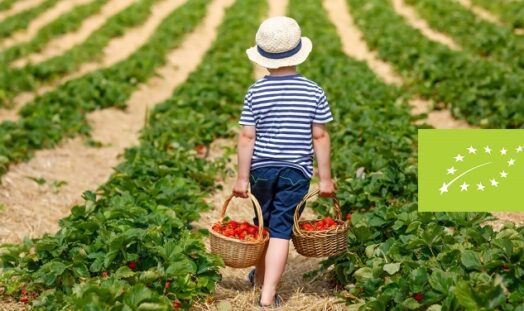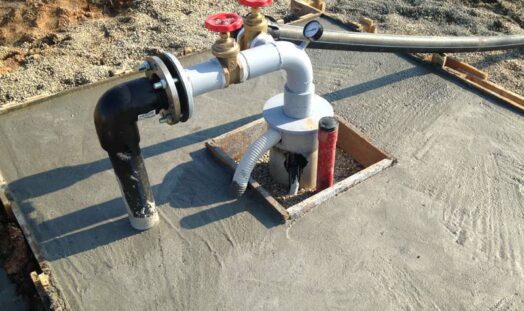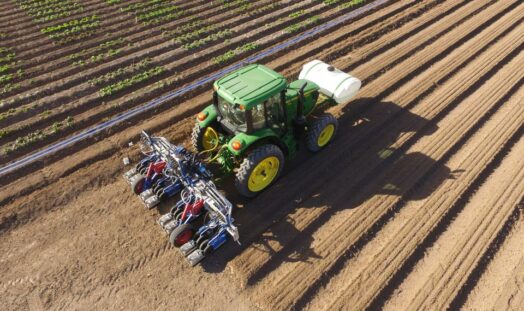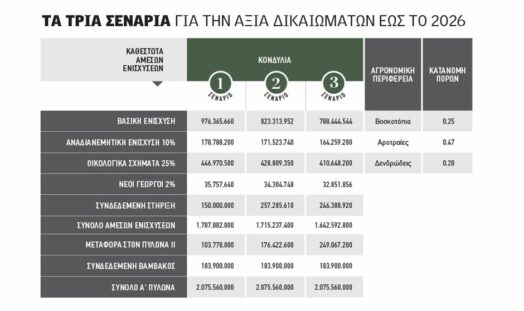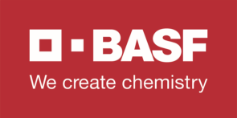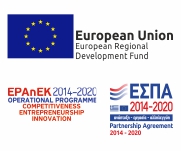Plant protection products
Agromichaniki Volou SA, in its effort to contribute to the improvement of plant protection, has prepared Plant Protection Programs for the main crops, which can be utilized and improved by local agronomists and adapted to the conditions of each region.
The Plant Protection Programs, among others, include a complete application plan based on the products available to the company.
Plant protection products: These are products that contain active substances, antiphytotoxic or synergistic, or contain such substances, and are intended for one of the following uses:
•to protect plants or plant products from any kind of pests or to prevent the action of these organisms, unless these products are considered to be used for hygiene purposes and not for the protection of plants or plant products.
•affect the normal processes of plants, such as substances that affect their growth, unless they are nutrients.
•preserve plant products, unless they are substances or products subject to specific Community provisions on preservatives
•destroy unwanted plants or parts of plants other than algae
•slow down or prevent the unwanted growth of plants other than algae.
Active substances: substances, including micro-organisms, which have a general or specific action of protection against harmful organisms or which act on plants, parts of plants or plant products.
Regulation (EC) No 1107/2009 of the European Parliament and of the Council of 21 October 2009 concerning the placing of plant protection products on the market and repealing Council Directives 79/117 / EEC and 91/414 / EEC.
This Regulation lays down rules for the marketing authorization of plant protection products and for their placing on the market, use and control within the Community. This Regulation increases the level of protection of health and the environment, contributes to the better protection of agricultural production, and expands and consolidates the single market for plant protection products.
The regulation reaffirms the importance the Commission attaches to the high level of protection of health and the environment, while seeking to harmonize the placing of plant protection products on the market *. He also wants to be involved in improving agricultural production.
The scope of this Regulation covers plant protection products and their active substances *.
The regulation sets criteria for the approval of active substances. An active substance shall be approved provided that it meets the criteria set out in points 2 and 3 of Annex II to this Regulation. These criteria concern the effectiveness of the substance, its composition, its characteristics, the available methods of analysis, the effects on human health and the environment, ecotoxicity, the importance of metabolites and residues. Thus, an active substance is approved only when it has not been classified as mutagenic, carcinogenic or toxic for class 1A or 1B reproduction, and when it is not considered to have endocrine disrupting properties.
Furthermore, if an active substance is considered to be persistent or persistent organic pollutant, bioaccumulative and toxic or even highly persistent and highly bioaccumulative, it cannot be approved.
The first approval is valid for a limited period, not exceeding ten years, and may be subject to conditions and restrictions relating to, for example, the purity of the active substance, the target culture, the category of users.
The issue of marketing authorizations for plant protection products remains within the jurisdiction of the Member States. Applications shall be submitted by applicants in the Member State in whose territory the product is first marketed. The applications shall be accompanied by two dossiers containing all available data, in order to be able to assess the potential effects of the plant protection product on human or animal health and the potential impact on the environment. The information provided by the applicant or producer may be protected by a confidentiality clause when it constitutes industrial or commercial secrecy.
The time limit for examining an application for a marketing authorization for a plant protection product shall be limited to twelve months from the receipt of the application by the Member State. During this period, the Member State shall check that the product in question complies with the licensing conditions. If additional information is needed, the Member State may extend the initial examination deadline to allow the applicant to submit it. This additional period shall not exceed six months and shall expire upon receipt of the additional information by the Member State.If, on the expiry of the time limit, the applicant has not submitted the missing information, the Member State shall inform the applicant that the application is inadmissible.
The marketing authorizations are valid for ten years and can be renewed. A Member State may review an authorization at any time if the authorization no longer complies with one of the market conditions. In such a case, the Member State may revoke or modify the authorization.
The principle of mutual recognition laid down in this Regulation allows the authorization holder to place the product on the market in another Member State, provided that the agricultural, phytosanitary and environmental conditions are comparable in the respective regions. However, a Member State may restrict or temporarily prohibit the movement of a product in its territory if the product poses a risk to human or animal health or to the environment.
The regulation, in order not to deprive certain crops of means of protection, allows the holder of a plant protection product license, which has already been granted for that Member State, to request an extension of the license to minor uses not yet covered by that license. These extensions of use are also covered by the principle of mutual recognition.
At least once a quarter, Member States shall update information on plant protection products which have been licensed or withdrawn. This information must be accessible to the public.
A temporary authorization may be granted for the placing on the market of plant protection products containing an active substance which has not yet been approved. Temporary leave is granted for a period not exceeding three years.
The requirements laid down in Directive 1999/45 / EC on dangerous preparations apply to the classification, labeling and packaging of plant protection products. The packaging of these products must avoid misleading consumers about their use.
Member States shall carry out official controls to ensure compliance with this Regulation. They shall finalize and transmit to the Commission a report on the extent and results of these audits within six months of the end of the reporting year. The Commission shall call on experts to carry out general and specific checks in the Member States. These checks are intended to verify the official checks carried out by the Member States.
The Commission may adopt emergency measures to restrict or prohibit the use and / or sale of a plant protection product where it is likely to pose a serious risk to human or animal health or to the environment and this risk may not be to be dealt with satisfactorily by the measures taken by the Member State or States concerned.
Studies – Programs
Pholosophy of Agricultural Volos SA about the subsidized programs
The ability to boost business investment depends to a large extent on the effective combination of:
(a) the undertaking, for:
• the efficient planning and scheduling of subsidized investments
• supporting the viability of the investment
• the documentation of the exploitation of the results of the investment,
• the documentation of adequacy of the necessary intangible and material resources for the implementation of the investment,
• the documentation of its reliability for the implementation of the investment (positive historical economic data, upward growth rates, implementation of investments, etc.),
• the documentation of the organizational and administrative adequacy of participation, management and implementation of the investment.
b) the consultant, for:
• the selection of the optimal combination of investment actions to ensure the best result
• full information of the company, conditions of participation, restrictions, etc. and the effective management of “dangerous” points
• τη σύνταξη πλήρους οικονομοτεχνικής μελέτης τεκμηρίωσης της επένδυσης
• την τήρηση όλων των τυπικών προδιαγραφών μεθοδολογία συγγραφής, χρήση προτύπων, δομή φακέλου, δικαιολογητικά, κλπ.,
• την τεκμηρίωση των κρίσιμων σημείων που βαρύνουν σημαντικά στην αξιολόγηση και επιλογή των προτάσεων
• τη συστηματική οικονομική διαχείριση κατά την υλοποίηση, για την ελαχιστοποίηση των πιθανοτήτων μείωσης της επιδότησης.
Marketing Agricultural Products
In recent years, the company is active in the trade of agricultural products (cereals, legumes, legumes, corn) in collaboration with the leading companies in Greece.
Our goal is not only to trade in common agricultural products but in cooperation with large processing companies to proceed to a high level of production of products that will come from crops that implement an integrated crop management system.
We work with selected partners who select and commit those quantities of products that are deemed suitable for marketing as well as manufacturing companies whose product quality is one of their primary concerns.







